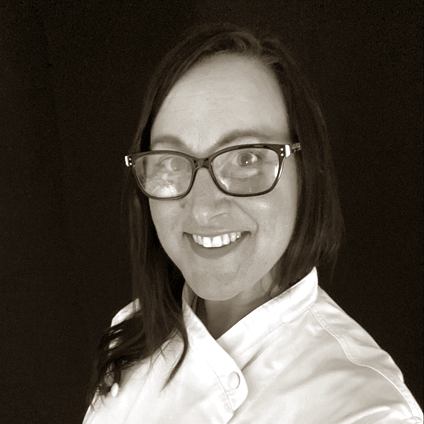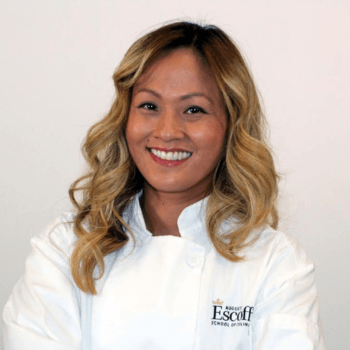If you’re particularly fond of the “magic” that happens in an oven, whether it involves crafting delightful pastries, pillowy breads, or everything in between, then pursuing the pastry path could be for you—especially considering today’s thriving job market. According to the baking career outlook published by the U.S. Bureau of Labor Statistics, the field is set to witness a 5% growth from now until 2031—outpacing the average for all occupations.
What is a Pastry Chef?
Pastry chefs specialize in crafting delectable desserts and pastries, with a primary focus on the art of baking. Baking and pastry arts demand a distinct skill set compared to the broader culinary arts, but it is a pathway that requires no less dedication. With those insights in mind, let’s explore how to become a pastry chef.
What Do Pastry Chefs Do?
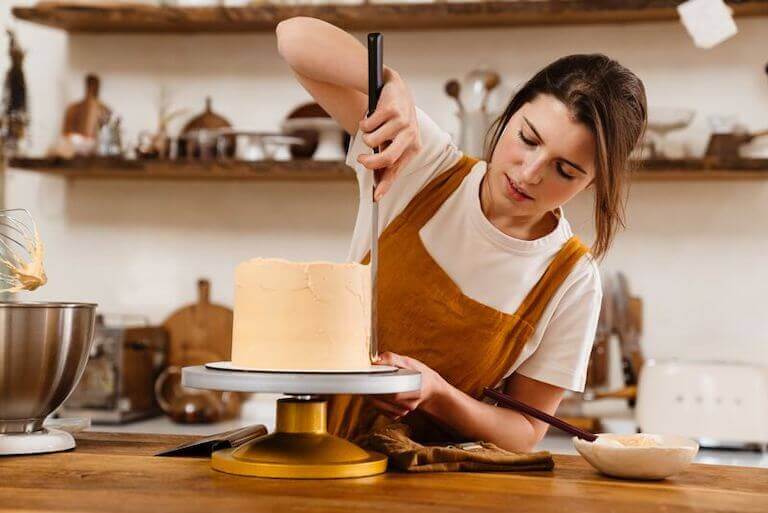
Pastry chefs typically need to know advanced decorating skills.
In a nutshell, pastry chefs are specialty chefs typically responsible for assembling baked goods and desserts. They are often thought of as counterparts to culinary executive chefs. Whereas culinary chefs might be viewed as experts in entrees and savory elements, pastry chefs can be go-to pros of desserts and all things sweet and/or baked. The pastry arts can require an incredible amount of precision and attention to measurements that the culinary arts often do not.
Typical Pastry Chef Job Responsibilities
While job responsibilities can naturally vary based on the workplace, they can also evolve with a pastry chef’s experience. For instance, a novice pastry chef with a few years under their belt might collaborate closely with a team to create an array of baked goods, such as buttery croissants and warm cookies. They may also have a hand in overseeing ordering processes to ensure a smooth flow of ingredients.
As a pastry chef gains experience, their role can deepen. They could venture into recipe innovation—exploring uncharted flavor profiles and pastry concepts. A seasoned pastry chef might even take a lead in menu design, which could reshape the entire customer experience! Beyond their confectionery craft, an established pastry chef may guide team dynamics, which may include hiring, training, mentoring, and managing the pastry brigade.
What Skills and Qualities Might a Pastry Chef Need?
Before deciding to take the pastry chef career route, it might be helpful to understand what skills and qualities you may need to succeed.
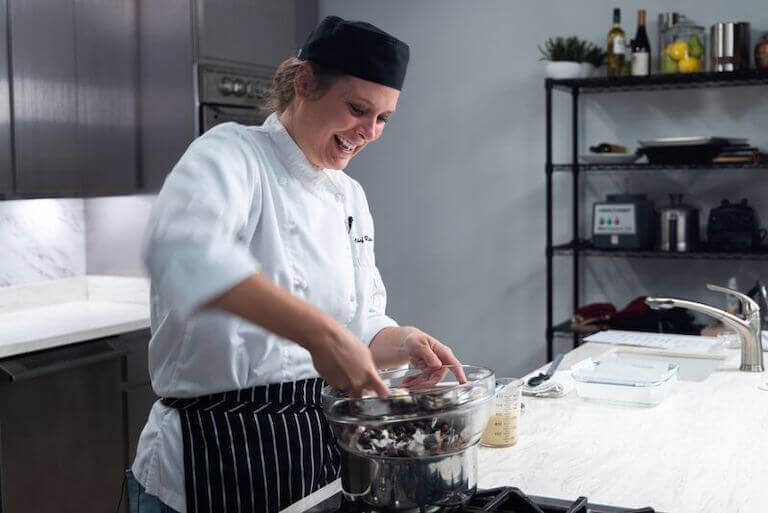
Most pastry chefs leverage a strong sense of creativity and passion in the kitchen.
Composure in the Kitchen
Whether you spend a few days assembling an intricate three-tier wedding cake, or spend the majority of your time crafting the perfect flaky croissant recipe, being a professional pastry chef may call for a great deal of patience! In baking, if you rush through a critical stage of a recipe, or accidentally skip a step, it could affect your final result—wasting precious time.
On top of patience for the sheer art of the craft, you may likely have to manage incoming requests from clients and staff too. All in all, patience is a virtue when it comes to becoming a pastry chef.
Exceptional Leadership Skills
Pastry chefs aren’t just responsible for conceptualizing scrumptious baked goods—they could wear the manager hat too, which may require substantial leadership skills. Not only do they often oversee quality control, but they might manage team responsibilities, schedules, and more. Along with leading the pack, pastry chefs can also benefit from having great time management skills and organization capabilities.
Creativity and Imagination
At the end of the day, a pastry chef is an artist. Depending on the pastry or baked good, pastry chefs usually start with a “blank canvas” and fill in the details by tapping into their own vision. Great pastry chefs may also want to put their own twist on a tried-and-true recipe or add novelty items to a menu. For example, they might experiment with different flavors like adding a hint of cardamom to a traditional cake or incorporating unexpected ingredients like chili powder to a chocolate tart. Being imaginative can help pastry chefs create delicious treats for customers!
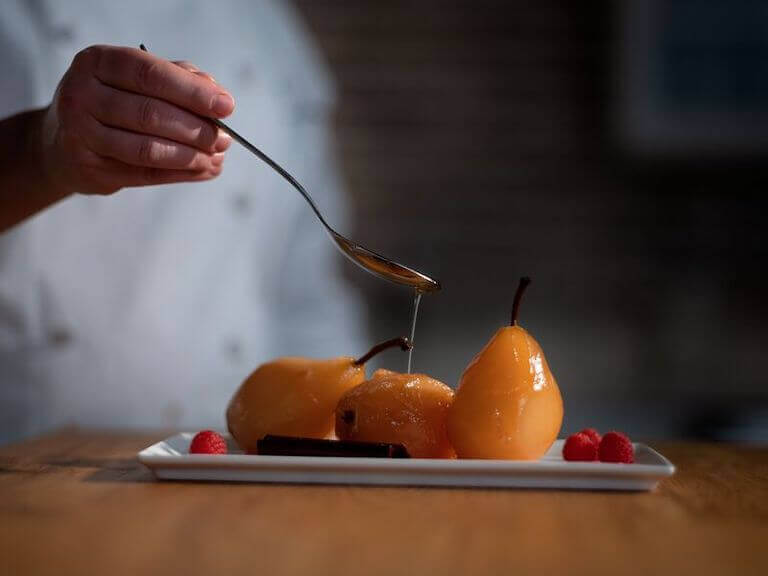
Pastry chefs are often viewed as artists—always conceptualizing their next creation!
Flavor Balancing
In order for pastry chefs to ideate and come up with fresh, new recipes, they should understand the ins and outs of flavors and textures. What key flavors make up a perfectly baked Pain au Chocolat or caramelized Cannelés de Bordeau? Understanding these nuances may allow pastry chefs to simply “play” in the kitchen, all while creating well-balanced desserts!
Stamina
It’s true—like most chefs, pastry chefs often work long hours, which could involve standing on their feet for extended periods of time. To keep up with the daily demands, physical stamina might be essential to handle the everyday grind of a bustling kitchen. It also can be imperative to understand how to maintain a healthy, work-life balance, which can mitigate burnout.
How You Can Become a Pastry Chef: Step-by-Step
Though full of opportunity, the field of baking and pastry is also competitive. Hiring managers usually consider candidates who are driven, creative, and meticulous! Also, pastry chefs with a credible education and additional certification could stand out amongst the crowd! Although there isn’t a black-and-white path to becoming a pastry chef, here are a few steps to consider taking as you embark on this route.
1. Start With a Foundational Baking and Pastry Education
For an aspiring patissier, the journey to becoming a pastry chef can begin with a degree or diploma. You might think, and maybe you’ve even heard, that working your way up or starting a pastry job without experience and getting promoted is just as effective as securing a degree or diploma, but there are professionals in the field who would say otherwise.
Chef NaDean Johnson, a Lead Baking & Pastry Chef Instructor at Auguste Escoffier School of Culinary Arts, is one of them. After owning and running her own coffee and bakeshop for six years, she decided to return to school to enhance her education and “upskill” her baking & pastry knowledge.
The skills you may need to succeed in the pastry arts can be taught thoroughly in an academic setting, where students can learn the role of different ingredients and the importance of precision. A supportive environment to practice these skills is critical.
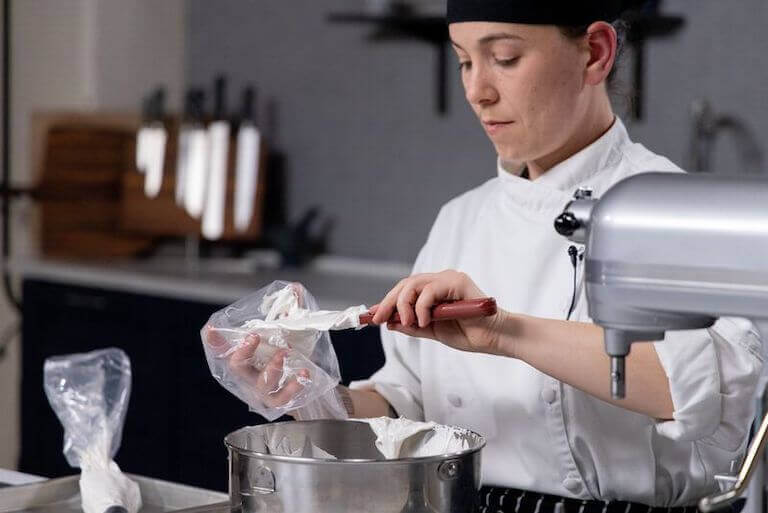
Grasping modern bakeshop skills may help aspiring pastry chefs excel!
Students enrolled in Escoffier’s Online Baking & Pastry diploma and degree programs study alongside talented Chef Instructors to grasp the most important aspects of the business. This begins by examining key fundamentals of baking & pastry, such as baking math, mise en place, and safety and sanitation.
Fully understanding the nuts and bolts of the modern bakeshop can also prepare students for a more advanced curriculum, such as menu design, inventory management, foundation of complex breads, Confiserie, cake design, and more.
2. Hone Your Skills Under Experienced Mentors
Chef Colette Christian, an Escoffier Chef Instructor and Certified Master Baker, explains the importance of being intentional and motivated when you embark on a career in the pastry arts. “You have to have a good foundation, set realistic goals, and then not get discouraged.”* A large part of the foundation she refers to is mentorship.
Christian, who trained under former White House Pastry Chef Albert Kumin, encourages her pastry students to work in as many fast-paced, respected professional kitchens under the guidance of experts as possible.
Mentorship is critical when you set out to become a pastry chef. You need to be able to watch experts at work, practice skills and receive feedback, and ask all the questions you may have. Good mentors can help you set goals, guide your next steps, and even create networking opportunities for you.
3. Secure a Pastry Arts Externship
In culinary school, mentorship can come in many shapes and sizes…including an externship. Escoffier Baking & Pastry Arts students must complete one to two hands-on industry externships, depending on the program. Securing an externship can be an essential piece of many culinary curricula, as accomplished professionals welcome you into their beloved kitchens. Under their guidance and mentorship, you can get a “sweet” taste for being a pastry chef in a real-world setting, plus foster strong industry connections that may come in handy post-graduation.
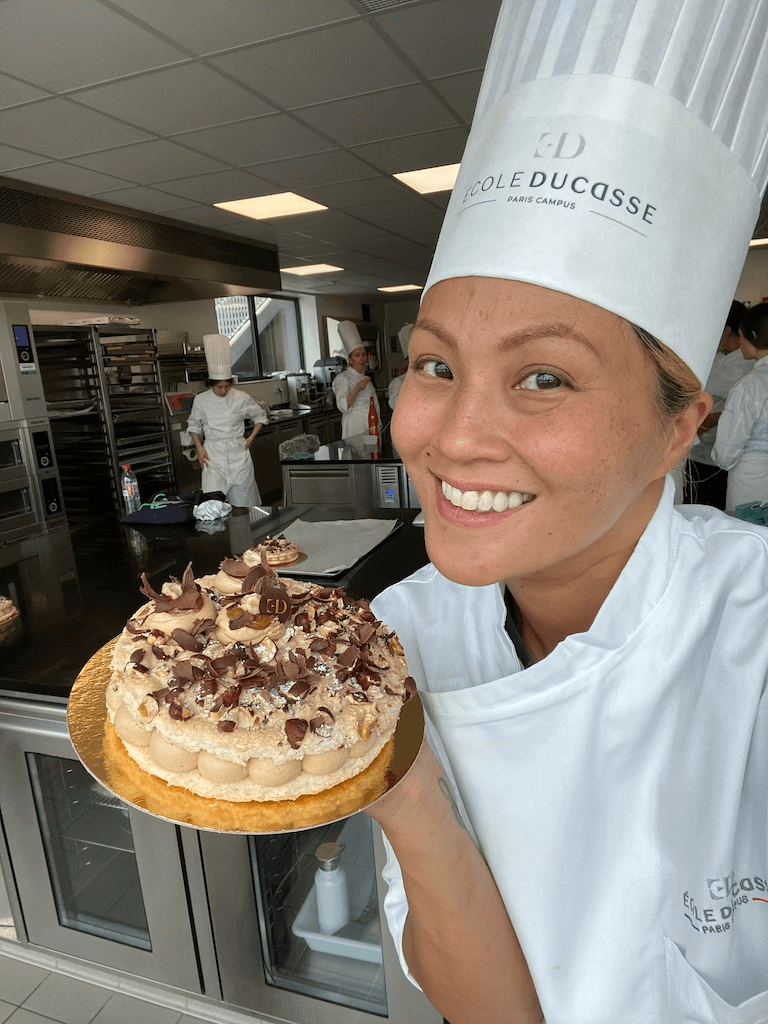
Aspiring pastry chefs can benefit from an international study opportunity, such as Escoffier Baking & Pastry Graduate Suhalia Gant.
Escoffier Baking & Pastry Student Suhalia Gant worked closely with Escoffier’s Career Services to refine her resume and cover letter in preparation for her externship hunt. In a matter of no time, she was offered a six-week externship position at Sugar Fixé Pâtisserie in Oak Park, Illinois—just a few minutes away from her home.
Then shortly after she completed her externship, she decided to secure additional pastry arts training in Paris, France at the prestigious École Ducasse—a culinary school founded by the legendary Alain Ducasse. This type of immersive, international study opportunity helped Gant refine her pastry and chocolate skills even more! Once she flew back to the States, the boutique French pastry shop where Gant completed her externship offered her a full-time position..and everything fell neatly into place!
What Certifications Might Be Required to Become a Pastry Chef?
Certification can help you stand out from other job applicants when you’re looking for a position in the pastry world. Having your skills certified could show that you’ve gone above and beyond for your career and invested time into your growth.
Certified Master Pastry Chef and Culinary Education Specialist at Escoffier Frank Vollkommer knows a thing or two about dedicating himself to his craft. A self-described lifelong learner, he says, “I think that competition and certification both represent opportunities to push yourself outside of your comfort zone and to learn a lot.”*
Common Pastry Certifications
The American Culinary Federation is a reputable certifying body that offers many pastry arts certifications.
Certified Master Pastry Chef Certification: The most prestigious of these is the Certified Master Pastry Chef certification. This shows that you have mastered the pastry arts, and it is one of the most respected culinary certifications in the world.
Certified Executive Pastry Chef Certification: The Certified Executive Pastry Chef certification indicates that you have many years of experience in the pastry arts and have also worked as a supervisor to other chefs.
Certified Pastry Culinarian Certification: The Certified Pastry Culinarian certification shows that you understand the basics of the pastry arts and requires both experience and education to obtain.
The American Society of Baking also offers some certifications.
Master Baker Certification: Master Baker is the most difficult designation to get; this certification is reserved for the most distinguished and masterful pastry culinarians.
Certified Baker Certification: The Certified Baker certification shows that you have the skills required to produce commercial baked goods.
Types of Pastry Chef Careers
Trained pastry culinarians may have several options to consider when deciding where their careers will take them. Of course, professional pastry chefs can often find work in the kitchens of casual or fine dining restaurants, hotels, or resorts. Many restaurants have executive chefs, assistant chefs, and line chefs dedicated to baking sweet treats or breads.
Depending on the venue, these chefs may work right alongside culinary chefs curating menus and dishes to deliver a complete dining experience, or they may work independently of the culinary team and arrive early to prepare their baked goods before the rest of the chefs start working. Aside from these types of hospitality settings, candy, ice cream, gelato, chocolate, coffee, and other specialty dessert shops are always in need of talented chefs, too.
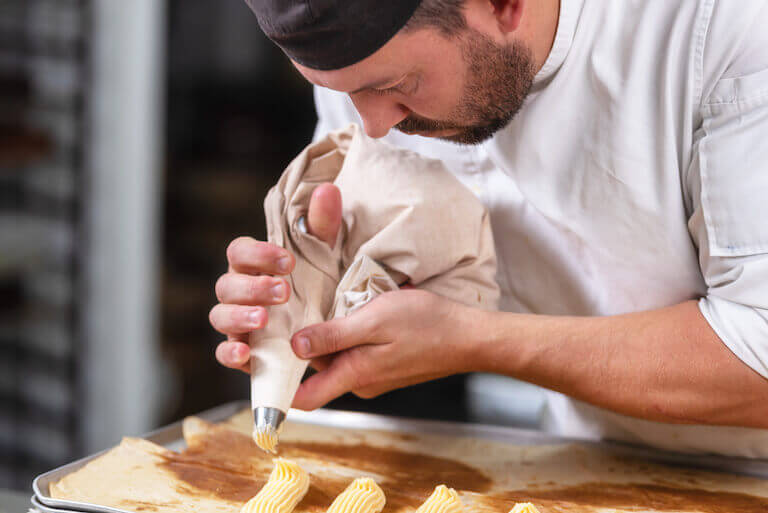
Strong attention to detail can help pastry chefs with recipe execution.
If those sectors don’t seem like a good fit, chefs with backgrounds in the pastry arts can still have plenty of other choices. Many pastry chefs go on to open a bakery or work in one. Some may even start their own food trucks focused on whatever treat they specialize in.
Entrepreneurial-minded pastry culinarians may even launch an online pastry shop selling their own direct-to-consumer creations. Chefs who are passionate about creation and innovation may consider writing a cookbook, going into recipe development, or taking up food blogging.
The Next Step for Aspiring Pastry Chefs
Becoming a pastry chef can require unwavering dedication and practice! Discovering the science of baking and honing your skills takes time, but with practice, guidance, and education, you can embark on an exciting career as a pastry chef or even start your own business.
And the good news is—it’s never too late to pursue a career in the pastry industry. Start your journey to becoming a pastry chef with a degree or diploma from Escoffier! Request more information about our Baking & Pastry Arts programs today.
ENJOYED THIS PASTRY ARTS ARTICLE? CHECK THESE OUT NEXT!
*Information may not reflect every student’s experience. Results and outcomes may be based on several factors, such as geographical region or previous experience.

